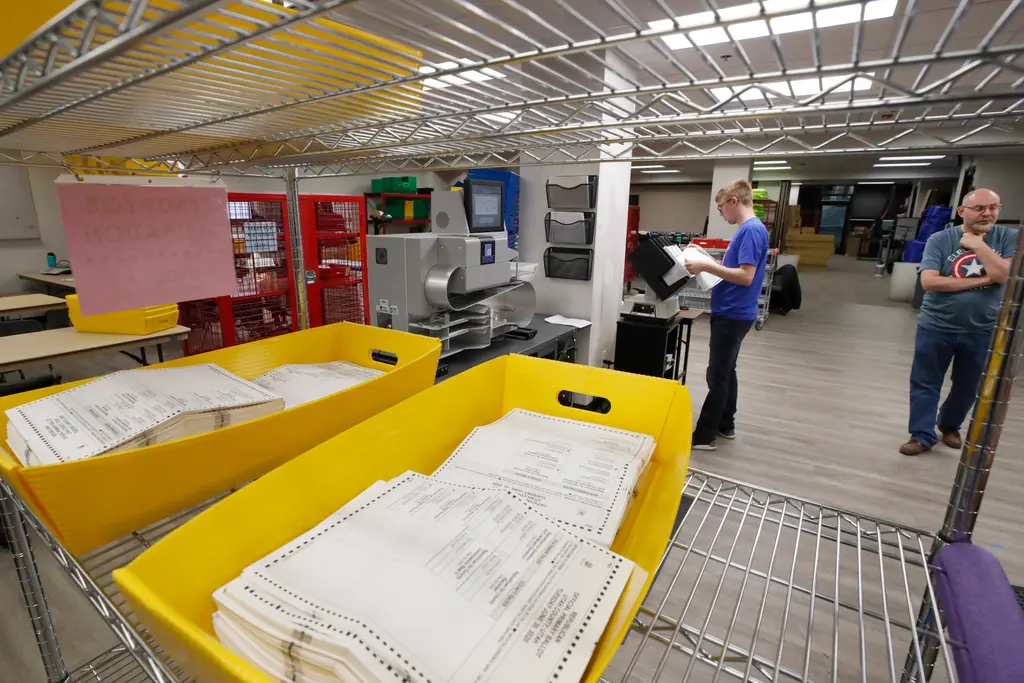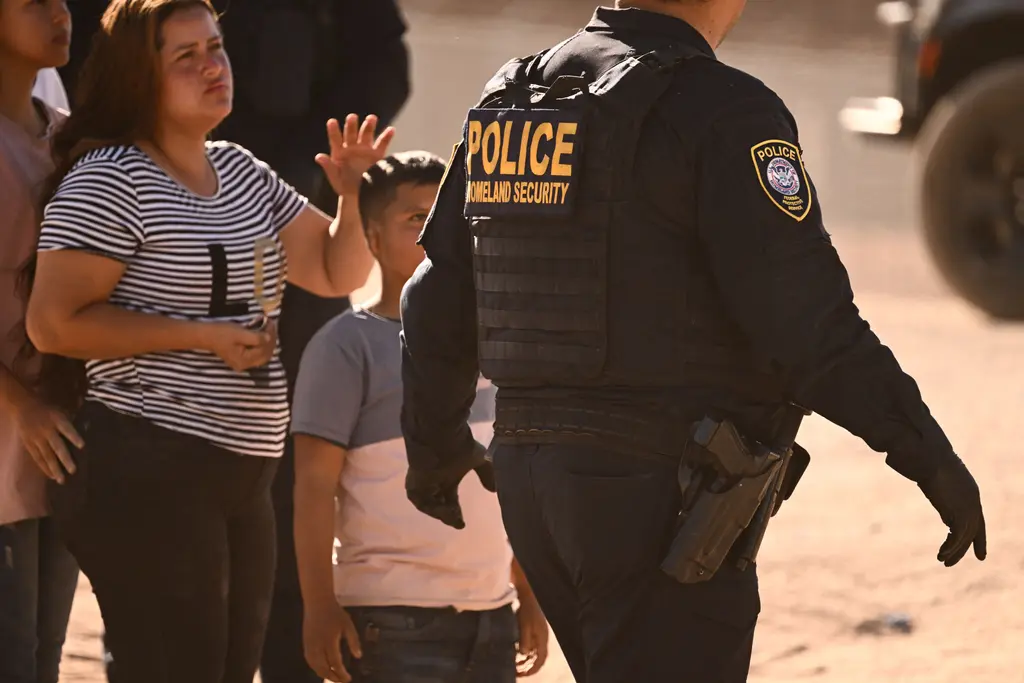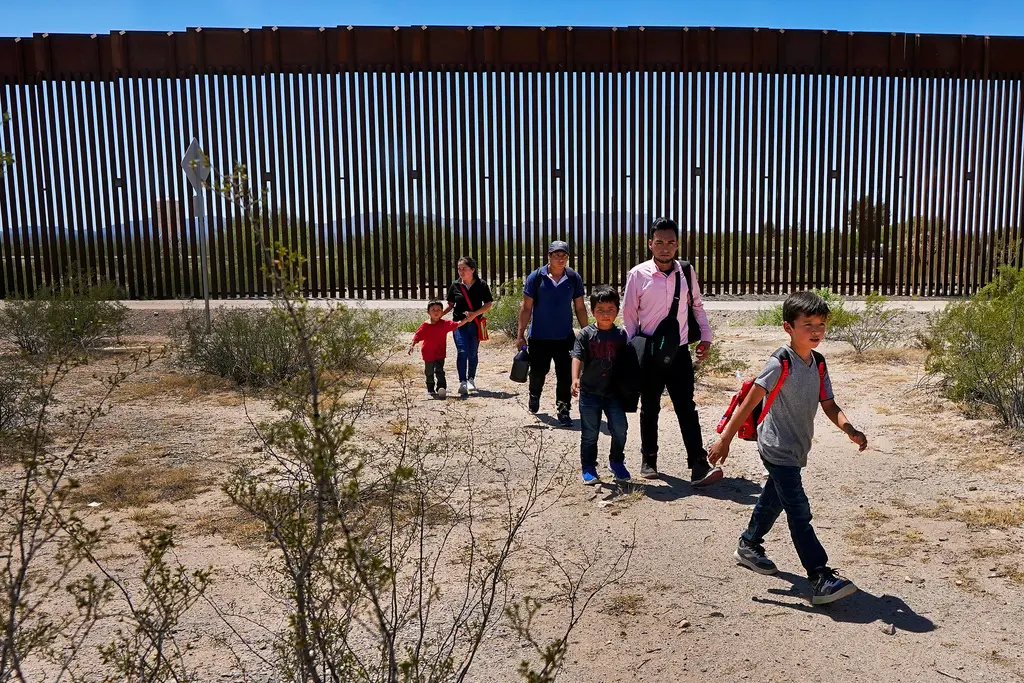Mike Pence: when you disagree with El Jefe

FULLERTON, California – The first thing you notice about Mike Pence is his kindness.
The former vice president entered the hotel room where we were about to film a TV interview by greeting all the camera crew and producers. Later he said, without prompting, that he ired Univision, the company where I have worked nearly 40 years. What is surprising is that someone who worked with one of the most rude, lying and boorish presidents in history, Donald Trump, would be so different.
How did they work together for four years? What did he do when he disagreed with the jefe? What was his role as vice-president, to back Trump with complete loyalty or question his decisions?
Mike Pence is promoting the only book he's ever written. It's titled So Help Me God, and in it he recounts his long political career as a member of Congress, governor of Indiana and then vice president. But the book is full of personal anecdotes about his religious conversion and his very public fight with Donald Trump after the presidential elections in November of 2020. Pence tells how Trump pressured him for weeks, in public and in private, to reject the official results of the balloting.
But Pence did not back down.
“President Trump was wrong,” he wrote. “I had no right to overturn the election.” In fact, Trump lost the elections by 74 electoral votes and more than 7 million popular votes. But he's never itted that. And that very important disagreement distanced Pence from someone he considered a friend for years.
And then Trump put him in danger.
On January 6 of 2021, a mob incited by Trump violently attacked the Capitol, invading it and wrecking several areas. Several people died. And some of the participants in the insurrection shouted that they wanted to “hang Pence.” “I was presented with a tweet that the president sent out saying that I lacked courage,” Pence told me during the interview. “The president’s words and actions endangered my family and everyone at the Capitol.”
Más sobre Opinion
Nevertheless, Pence does not believe Trump should be put on trial for his role in the insurrection, and should not be barred from launching a third try for the presidency. “Well, no one is above the law,” he told me. But for him, the people truly responsible are those “that were rioting in the Capitol, the destruction of property, the circumstances that ultimately cost lives.”
Pence and Trump are not talking these days. He makes that clear in his book. But during the four years of the Trump presidency they never had a public disagreement. Pence always seemed to and protect Trump. That's why I asked him the following question:
“Let me ask you about your role when you were Vice President. Donald Trump lied thousands of times -more than 30,000 times according to The Washington Post. He made racist and sexist remarks. He separated more than 5,000 children from their parents. And still, you remained silent. And the question is why?”
“I was always loyal to President Donald Trump,” he answered. “And, as I recount in my book, at times that we had differences of opinion, I expressed them to him in private. I believe that’s the job of the Vice President of the United States: it’s to be loyal to the president except [when] the higher loyalty to God or the Constitution intervenes.”
His answer reflected the complicated relationship between a president and his vice-president. It is, at times, a deal with the devil. But, as Pence explains, there is a limit even to the deepest loyalty. And Trump went beyond the limit when he asked Pence to annul the elections.
During nearly four years, Pence never broke with Trump. He did it only at the end of the presidency. But there were many times when it would have been useful and healing for the country to hear his voice. Not just when thousands of migrant children were separated, but when it was time to condemn racism.
In 2017, after the violent marches by white supremacist and Neo-nazi groups in Charlottesville, Trump said there were “very fine people on both sides.” Pence remained publicly silent during the ensuing controversy, and did not criticize his boss.
He also remained silent when Trump made racist comments. Trump called Mexican migrants “criminals” and “rapists,” called Sen. Elizabeth Warren “Pocahontas,” claimed that Barack Obama was not born in the United States, called Covid-19 a “China virus,” and alleged that Judge Gonzalo Curiel could not do his job because of his Mexican background. But Pence claims in his book that Trump “is not a racist or a bigot,” and declares that he would not have accepted the vice presidential nomination if Trump were those things.
“Well, I can't for anybody else's opinion,” Pence told me during the interview. “The president had at times an abrasive style and rhetoric that's far afield from the way I speak. We're different men.”
Exactly. Pence and Trump are very different human beings. That's why it's so difficult to imagine how and why the former vice president endured the president's words and treatment for so long.
The interview ended like it started. With total kindness on Pence's part. He took photos with the camera crew and said goodbye to each member, even though he was close to missing a flight to Las Vegas. And I was left with the feeling that would not be our last chat.
When I asked him, before he left, whether he was seriously considering a campaign for the presidency – and potentially facing Trump in the race for the Republican nomination, he did not answer directly but said it would be a family decision. “We are a family that believes in prayer,” he said. “And I promise you that I'll keep you informed.”



